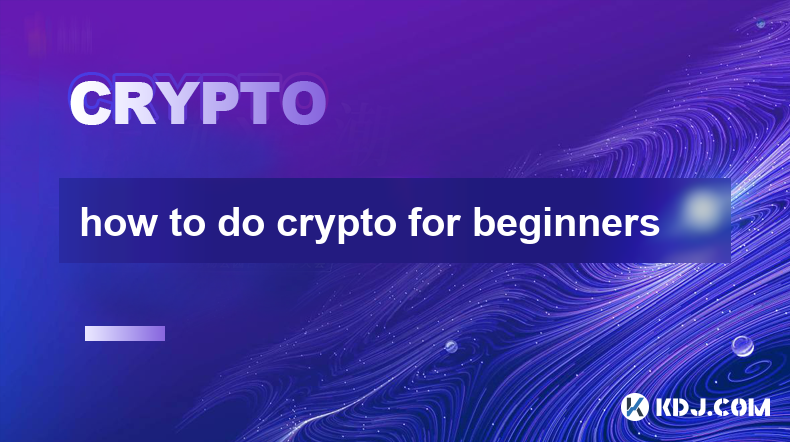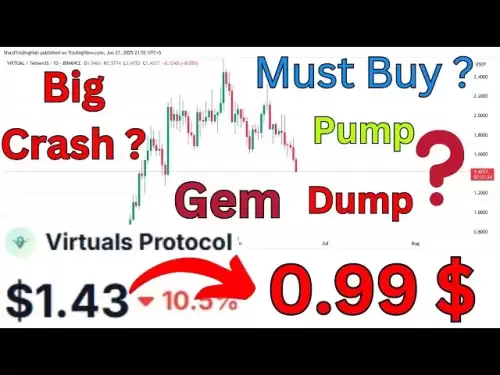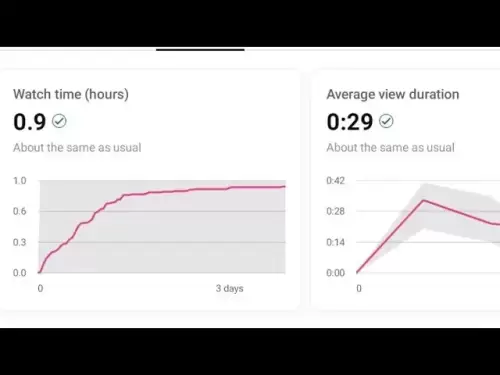-
 Bitcoin
Bitcoin $103,456.1111
0.49% -
 Ethereum
Ethereum $2,414.9631
0.02% -
 Tether USDt
Tether USDt $1.0006
0.05% -
 XRP
XRP $2.1083
0.24% -
 BNB
BNB $634.8760
-0.76% -
 Solana
Solana $139.8437
1.94% -
 USDC
USDC $0.9998
-0.01% -
 TRON
TRON $0.2737
0.97% -
 Dogecoin
Dogecoin $0.1602
0.20% -
 Cardano
Cardano $0.5737
1.08% -
 Hyperliquid
Hyperliquid $32.9779
-2.54% -
 Bitcoin Cash
Bitcoin Cash $474.8886
-1.80% -
 Sui
Sui $2.6272
-1.99% -
 Chainlink
Chainlink $12.4878
0.14% -
 UNUS SED LEO
UNUS SED LEO $8.9234
0.35% -
 Stellar
Stellar $0.2411
-0.18% -
 Avalanche
Avalanche $17.0274
-0.70% -
 Toncoin
Toncoin $2.8936
-1.11% -
 Shiba Inu
Shiba Inu $0.0...01112
-0.58% -
 Litecoin
Litecoin $82.6982
1.33% -
 Hedera
Hedera $0.1423
-0.05% -
 Monero
Monero $314.8455
3.26% -
 Ethena USDe
Ethena USDe $1.0006
0.01% -
 Polkadot
Polkadot $3.4043
1.14% -
 Dai
Dai $0.9999
0.01% -
 Bitget Token
Bitget Token $4.2848
-0.13% -
 Uniswap
Uniswap $6.8748
-5.45% -
 Pepe
Pepe $0.0...09661
0.52% -
 Pi
Pi $0.5359
1.19% -
 Aave
Aave $242.9168
-1.03%
how to do crypto for beginners
Understanding cryptocurrency exchanges requires considering security features, reputation, supported coins, and trading fees to make an informed decision.
Jan 31, 2025 at 12:24 am

Key Points:
- Understanding the Basics of Cryptocurrency
- Choosing the Right Cryptocurrency Exchange
- Creating a Cryptocurrency Wallet
- Storing and Securing Your Cryptocurrency
- Understanding Cryptocurrency Transactions
- Managing Your Cryptocurrency Portfolio
- Common Pitfalls for Cryptocurrency Beginners
How to Do Crypto for Beginners
1. Understanding the Basics of Cryptocurrency
Cryptocurrency is a digital or virtual currency secured by cryptography, making it nearly impossible to counterfeit or double-spend. It operates independently of central banks or governments, relying instead on decentralized networks to validate transactions and issue new units.
Main features of cryptocurrency:
- Decentralization: Cryptocurrencies are not subject to the control of any single entity, such as a bank or government.
- Security: Transactions are secured using cryptography, ensuring the authenticity and integrity of the data.
- Transparency: Transactions are recorded on publicly accessible blockchains, allowing anyone to view the history of all transactions.
- Anony: While transactions are recorded on the blockchain, the identities of the parties involved can remain anonymous, unless they choose to reveal their identities.
2. Choosing the Right Cryptocurrency Exchange
A cryptocurrency exchange is an online platform where you can buy, sell, and trade cryptocurrencies. Choosing the right exchange is crucial as it affects the security of your funds and the fees you pay.
- Security: Choose exchanges that have robust security measures in place, such as cold storage and two-factor authentication.
- Reputation: Check the exchange's reputation by reading online reviews and researching its history.
- Supported Coins: Ensure the exchange offers the cryptocurrencies you are interested in trading.
- Fees: Compare the trading fees charged by different exchanges to find the most cost-effective option.
3. Creating a Cryptocurrency Wallet
A cryptocurrency wallet is a digital storage solution that stores your public and private keys, which are used to access and manage your cryptocurrencies. Different types of wallets offer varying levels of security and convenience:
- Hardware Wallets: Physical devices that store your keys offline, providing the highest level of security.
- Software Wallets: Apps that store your keys on your computer or mobile device, offering convenience but potentially less security.
- Online Wallets: Web-based services that store your keys online, offering ease of access but the lowest level of security.
4. Storing and Securing Your Cryptocurrency
Once you have created a wallet, it's crucial to store and secure your cryptocurrency effectively:
- Use a Strong Password: Create a strong and unique password to protect your wallet.
- Enable Two-Factor Authentication: Enable two-factor authentication (2FA) which requires a second form of verification when logging into your wallet.
- Store Offline: Store a significant portion of your funds in a hardware wallet or a cold wallet (a software wallet stored offline).
- Avoid Phishing Attacks: Beware of phishing emails and websites that attempt to trick you into revealing your private keys.
5. Understanding Cryptocurrency Transactions
Cryptocurrency transactions involve sending and receiving cryptocurrencies between different wallets using the sender's private key. Transactions are recorded on the blockchain, providing a permanent and immutable record of the transfer:
- Transaction Hash: A unique identifier assigned to each transaction, allowing you to track its status and confirm its validity.
- Transaction Fees: Fees paid to miners or validators who process and verify the transaction. These fees vary depending on the network and the transaction size.
- Confirmations: The number of times a transaction has been verified by multiple nodes on the blockchain. The more confirmations there are, the more secure the transaction becomes.
6. Managing Your Cryptocurrency Portfolio
Managing your cryptocurrency portfolio involves tracking the performance of your investments and making informed decisions about when to buy, sell, or hold cryptocurrencies. Different strategies can be employed:
- Hold Investments: Holding cryptocurrencies for a long period can potentially lead to significant gains, especially for established cryptocurrencies like Bitcoin and Ethereum.
- Day Trading: Actively buying and selling cryptocurrencies throughout the day, capitalizing on short-term price fluctuations. This requires extensive knowledge of the market and is considered high-risk.
- Dollar-Cost Averaging: Regularly investing a fixed amount of money into cryptocurrencies, regardless of the market price. This reduces the impact of volatility and can lead to long-term gains.
7. Common Pitfalls for Cryptocurrency Beginners
Common pitfalls to avoid when starting with cryptocurrencies include:
- Investing More than You Can Afford: Risk only what you can afford to lose, as cryptocurrency markets can be volatile and subject to fluctuations.
- Chasing the Next Big Coin: Avoid being lured by the promise of quick profits from obscure cryptocurrencies. Stick to established cryptocurrencies or conduct thorough research before investing in less-known coins.
- FOMO (Fear of Missing Out): Refrain from making impulsive decisions based on market hype or fear of losing out on potential gains. Conduct proper research and make informed investment decisions.
- Storing Keys in Plain Text: Avoid storing your private keys in plain text format or on insecure devices. Use a hardware or reputable software wallet to protect your funds.
- Ignoring Updates and Upgrades: Cryptocurrency exchanges and wallets frequently issue updates to improve security and functionality. It's crucial to keep your software up to date to protect your investments.
FAQs:
Q: I'm new to cryptocurrency. How do I get started?
A: The steps outlined above provide a comprehensive guide for beginners to start investing in cryptocurrencies.
Q: Is it safe to invest in cryptocurrency?
A: Cryptocurrency investments carry risks like any other financial asset. It's crucial to research and understand the market before investing.
Q: What are the best cryptocurrencies to buy for beginners?
A: Bitcoin, Ethereum, and stablecoins like Tether are widely considered suitable for beginners due to their established track record and market liquidity.
Q: How do I store my cryptocurrency securely?
A: Use a hardware wallet or a reputable software wallet that employs strong security measures like two-factor authentication and cold storage.
Q: How do I know if a cryptocurrency is a good investment?
A: Analyze the project's white paper, team, market demand, technological innovation, and long-term vision to evaluate its potential.
Disclaimer:info@kdj.com
The information provided is not trading advice. kdj.com does not assume any responsibility for any investments made based on the information provided in this article. Cryptocurrencies are highly volatile and it is highly recommended that you invest with caution after thorough research!
If you believe that the content used on this website infringes your copyright, please contact us immediately (info@kdj.com) and we will delete it promptly.
- Is Ruvi AI the Next Binance Coin (BNB)? Audited Token Heats Up!
- 2025-06-22 02:25:12
- Altcoins to Watch: Kaanch Heats Up as Solana Cools Down
- 2025-06-22 02:45:11
- Shiba Inu's Market Woes: Crash Predictions and a New Meme Coin on the Rise
- 2025-06-22 02:25:12
- Sahara Token Rockets 40389% on Binance Listing Announcement: A New Era?
- 2025-06-22 02:45:11
- Crypto Coins 2025: BlockDAG Leading the Charge
- 2025-06-22 02:50:11
- Shiba Inu's Market Cap Dance: A Crypto Minute-to-Minute in NYC
- 2025-06-22 03:10:43
Related knowledge

What is Ethereum’s Slashing mechanism and how to punish malicious behavior?
Feb 20,2025 at 03:08am
Key PointsOverview of slashingDifferent types of slashing in EthereumIncentives and consequences of slashingIdentifying and reporting slashed validatorsOngoing discussions and potential improvementsEthereum's Slashing Mechanism: Punishing Malicious BehaviorEthereum's slashing mechanism is an essential tool for ensuring network security and punishing mal...

What is the verifier node of Ethereum and how to become a verifier?
Feb 19,2025 at 06:00pm
The Verifier Node of Ethereum: A Comprehensive GuideKey Points:What is a Verifier Node?How to Become a Verifier NodeResponsibilities and Rewards of a Verifier NodeMinimum Requirements for Becoming a Verifier NodePotential Difficulties in Running a Verifier Node1. What is a Verifier Node?A Verifier Node is an independent entity on the Ethereum network th...

What is Ethereum’s staking, and how to participate and earn money?
Feb 19,2025 at 04:37pm
Key Points:Understanding Ethereum's Staking MechanismSteps to Participate in StakingBenefits and Rewards of StakingSecurity and Risk ConsiderationsTechnical Requirements and Hardware OptionsPotential Challenges and Troubleshooting TipsFAQs on Ethereum StakingWhat is Ethereum's Staking?Proof-of-Stake (PoS) is a consensus mechanism used in blockchain netw...

What is Ethereum’s DAO (Decentralized Autonomous Organization) and how does it work?
Feb 20,2025 at 03:12am
Key PointsDefinition and Structure of a DAOGovernance and Decision-Making in DAOsBenefits and Use Cases of DAOsChallenges and Limitations of DAOsWhat is Ethereum's DAO (Decentralized Autonomous Organization) and How Does It Work?Definition and Structure of a DAOA Decentralized Autonomous Organization (DAO) is an innovative governance and management fram...

What is Ethereum's multi-signature wallet and how to improve security?
Feb 20,2025 at 02:18pm
Key Points:Understanding the Concept of a Multi-Signature WalletBenefits and Drawbacks of Multisig WalletsRequirements for Setting Up a Multisig WalletStep-by-Step Guide to Generating a Multisig WalletImplementing Strategies for Enhanced Security1. Understanding the Concept of a Multi-Signature WalletA multi-signature (multisig) wallet in the Ethereum e...

What is Ethereum's oracle and how to provide data for smart contracts?
Feb 21,2025 at 01:30am
Key Points:Understanding the concept of oracles in EthereumExploring different types of oraclesDetailed guide on how to provide data for smart contractsAddressing potential challenges and considerationsWhat is Ethereum's Oracle?Oracles are crucial components in the Ethereum ecosystem, enabling smart contracts to access real-world data and off-chain even...

What is Ethereum’s Slashing mechanism and how to punish malicious behavior?
Feb 20,2025 at 03:08am
Key PointsOverview of slashingDifferent types of slashing in EthereumIncentives and consequences of slashingIdentifying and reporting slashed validatorsOngoing discussions and potential improvementsEthereum's Slashing Mechanism: Punishing Malicious BehaviorEthereum's slashing mechanism is an essential tool for ensuring network security and punishing mal...

What is the verifier node of Ethereum and how to become a verifier?
Feb 19,2025 at 06:00pm
The Verifier Node of Ethereum: A Comprehensive GuideKey Points:What is a Verifier Node?How to Become a Verifier NodeResponsibilities and Rewards of a Verifier NodeMinimum Requirements for Becoming a Verifier NodePotential Difficulties in Running a Verifier Node1. What is a Verifier Node?A Verifier Node is an independent entity on the Ethereum network th...

What is Ethereum’s staking, and how to participate and earn money?
Feb 19,2025 at 04:37pm
Key Points:Understanding Ethereum's Staking MechanismSteps to Participate in StakingBenefits and Rewards of StakingSecurity and Risk ConsiderationsTechnical Requirements and Hardware OptionsPotential Challenges and Troubleshooting TipsFAQs on Ethereum StakingWhat is Ethereum's Staking?Proof-of-Stake (PoS) is a consensus mechanism used in blockchain netw...

What is Ethereum’s DAO (Decentralized Autonomous Organization) and how does it work?
Feb 20,2025 at 03:12am
Key PointsDefinition and Structure of a DAOGovernance and Decision-Making in DAOsBenefits and Use Cases of DAOsChallenges and Limitations of DAOsWhat is Ethereum's DAO (Decentralized Autonomous Organization) and How Does It Work?Definition and Structure of a DAOA Decentralized Autonomous Organization (DAO) is an innovative governance and management fram...

What is Ethereum's multi-signature wallet and how to improve security?
Feb 20,2025 at 02:18pm
Key Points:Understanding the Concept of a Multi-Signature WalletBenefits and Drawbacks of Multisig WalletsRequirements for Setting Up a Multisig WalletStep-by-Step Guide to Generating a Multisig WalletImplementing Strategies for Enhanced Security1. Understanding the Concept of a Multi-Signature WalletA multi-signature (multisig) wallet in the Ethereum e...

What is Ethereum's oracle and how to provide data for smart contracts?
Feb 21,2025 at 01:30am
Key Points:Understanding the concept of oracles in EthereumExploring different types of oraclesDetailed guide on how to provide data for smart contractsAddressing potential challenges and considerationsWhat is Ethereum's Oracle?Oracles are crucial components in the Ethereum ecosystem, enabling smart contracts to access real-world data and off-chain even...
See all articles
























































































